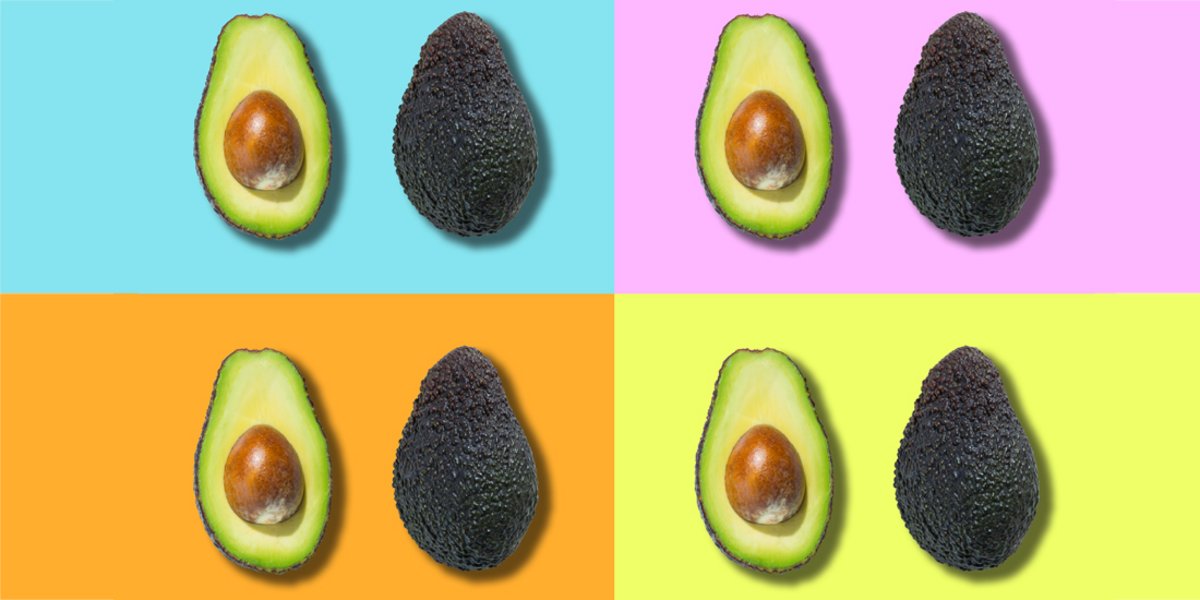Green gold from Mexico, it has been on the rise for a few years now and more particularly, even on Instagram. Did you know that this fruit alone has no less than 3,972,069 hashtags? But what makes it so popular?
Avocados are one of the most well-loved ingredients in the world. The avocado tree is native to Mexico and Central America and has been cultivated in these regions for centuries.
Besides their delicious taste, it is the nutritional value of avocados that makes them so popular.
But the big question remains: is the avocado a fruit or a vegetable?
Although they are often prepared and eaten like vegetables, curiously, avocados are organic fruits. Even weirder, avocados are actually single-seeded berries in the same family as sassafras, bay leaves, and various species of cinnamon. While avocados are unrelated to other berries such as blueberries, strawberries, and blackberries, from a botanical perspective, avocados are truly fruits.
Although it may seem like avocado should be a vegetable, due to the flavorful dishes it is used in, we have to settle this once and for all. The answer to this question is complicated. According to botanists, avocados are fruits. However, they are often classified as vegetables for nutritional and culinary purposes, even by the USDA.
Virtues and benefits, good reasons to eat avocado
Rich in nutrients: our ally against fatigue
Avocados are foods which are absolutely cram packed with nutrients. They are rich in monounsaturated fatty acids, which are known to be healthy for the heart. They provide a source of vitamin C, E, K and B6 and magnesium and potassium. They also provide lutein, beta-carotene, and omega-3 fatty acids. Vitamin B6 in avocados helps our body function properly and prevents the feeling of fatigue.
Avocados contain high levels of healthy and beneficial fats, which can help a person feel fuller between meals. Eating fat slows the breakdown of carbohydrates, which helps keep blood sugar levels stable.
Best for vision: antioxidant protection
Avocados contain lutein and zeaxanthin, two phytochemicals found in eye tissue that absorb light waves, and which can harm your vision. People who eat lots of antioxidant-rich foods are less likely to suffer from age-related macular degeneration, the leading cause of blindness in older people. They provide antioxidant protection to help minimize damage, including UV rays. Therefore, consumption of this fruit can reduce the risk of cataracts and macular degeneration in adults.
Helps prevent osteoporosis
Vitamin K is essential nutrient for good bone health and a quarter of the daily requirement of this vitamin can be obtained from just half an avocado. A diet rich in vitamin D, calcium and vitamin K can help maintain bone health, as the latter contributes to the absorption of calcium and decreases urinary calcium excretion. Half an avocado provides about 19% of the daily value of vitamin K. This nutrient is often overlooked, but it is essential for bone health.
Boost your mood helps reduce the risk of depression
Fatty acids play an important role in regulating the functions of the central nervous system and our cognitive processes, as they impact neurotransmitter levels and help balance hormones naturally. Avocados are a good source of folate, which plays an important role in overall dietary health. Studies have also found links between folate and depression.
Folate helps prevent the build-up of homocysteine, a substance that can interfere with our circulation, and the delivery of nutrients to the brain. In the United States, several studies have established a link between excess homocysteine and cognitive dysfunction, depression and the production of serotonin, dopamine, and norepinephrine, which regulate mood, sleep, and appetite. Therefore, the consumption of monounsaturated fats has been shown to reduce depression. It is now proven that the high amount of folate helps maintain the well-being of our brain, while regulating dopamine and serotonin.
A 2016 study, published in Advances in Neurobiology, found that the "diverse array of bioactive nutrients" found in avocados play a key role in preventing and curing Alzheimer's disease and Parkinson's disease.
Osteoarthritis relief: decreases symptoms of arthritis
Avocados, like soy and some other plant foods, contain saponins. These substances have a positive effect on the symptoms of osteoarthritis of the knee and hip. A 2018 review, published in the journal The Physician and Sports Medicine, found that key ingredients in avocados can help patients with hip or knee arthritis.
On average, people eat half an avocado at a time. This gives an adult 19% of their daily vitamin K needs, as we have already indicated in this article. This nutrient can help improve bone density and prevent fractures.
Avocado has risen in popularity due to its exceptional nutritional profile and diverse culinary uses and it is well deserved… So now, we have our Instagram Star answer! In toast, in a smoothie, in guacamole or even in a moisturizing mask, the avocado is the healthy and trendy fruit par excellence. That said, the avocado, also nicknamed green gold, is a victim of its own success and suffers the flip side of the coin. Because of its mass export, its intensive cultivation causes deforestation, and its production uses vast amounts of drinking water.
So, a delicious food, but to be consumed in moderation!
And a little gift from the editorial staff, we present to you Daniele Barresi, nicknamed the "Michelangelo of Fruits" who started the trend. After meticulously carving the flesh of half an avocado for an hour, he presented the fruit of his labours in a snapshot, liked by more than 2,500 people.









